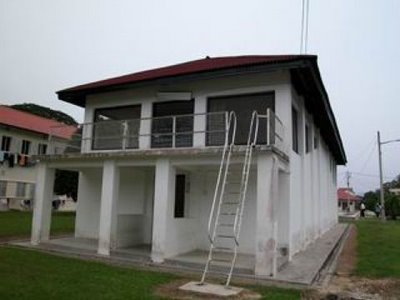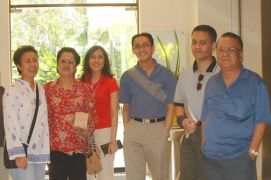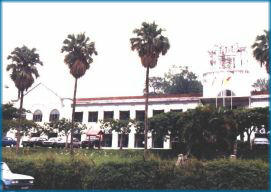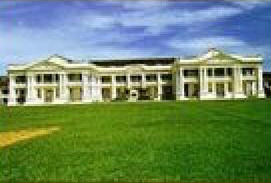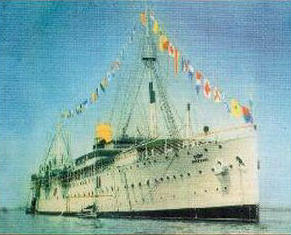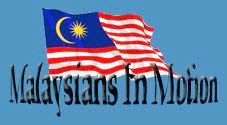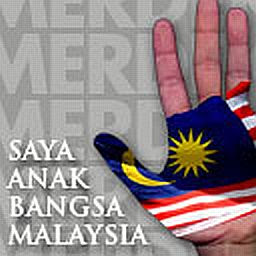Many years ago, when I was a lowly and underpaid apprentice* in between ships, I spent an idyllic holiday in a small hamlet called
Ranchi, in West Bengal, India. There I met a very famous Indian futurologist (forgot his name) who read my palm etc., and told me in no uncertain terms that I shall never be RICH, only just "comfortable" (which probably is more than anyone can ever wish for).
For many years thereafter, since there was no way I could become rich on a civil servant's salary, I tried to prove the s.o.b. was wrong by buying a lot of lottery and 4D tickets - but no such luck! The old guy was right and I am now quite resigned to the fact that I probably shall never be another Bill Gates or even Lim Goh Tong.
Anyway..... Ranchi, which is just a few hours away by rail from Calcutta, was also the birth place of Rabindranath Tagore, India's very much revered Nobel Prize winning poet.
On this lazy Tuesday afternoon, I would like to share with you all one of Tagore's famous poems (attached) which moved me very profoundly at the time. I had harboured the hope of being able to translate some of his work into Bahasa Malaysia from the original Bengali but somehow never got around to it.
* Apprentice cadet or
apprentice sahib to the Indian ship crew. Very often this gets inadvertently bastardised as
panties sahib !
---------------------------------------------------

DESTINATION UNKNOWN
Rabindranath TagoreHow much farther will you lead me on, Lady Beautiful?
Tell me where will finally land your golden boat?
Whenever I ask you, Lady of Far-Off Land,
you only flash at me your dulcet smile.
I do not know what thoughts stir in your mind.
Silently you lift your finger
and point to the infinite sea which heaves.
In the far west the sun hides behind the sky.
What lies there? What is it we go to seek?
Tell me, I once again ask you Lady Unknown:
On the evening sands burns the day's funeral pyre,
the waters shine like liquid fire,
the sky melts down in limpid flow,
the eyes of the horizon swim in tears.
Do you have your dwelling there beyond the wave-studded sea?
At the foot of the cloud-kissed western hills?
You smile silently but say no word.
The wind moans day and night with long drawn sighs.
The waters swell and roar in blind agony.
The dark blue waters are full of doubts.
There is no trace of shore on any side.
An endless weeping sweeps through the world.
On the sea of tears floats the golden boat.
The evening sun strikes it with golden shafts.
Why in its center you sit and smile silently
I do not understand what stirs in your mind.
When first you asked who will come with you,
I looked into your eyes in the early dawn.
You pointed with lifted finger
to the infinite sky that stretches west,
the restless light that flickers on the waves like hope.
I boarded the boat and asked,
"
Shall we find new life there beyond?Does hope yield there its golden harvest?"
You looked at my face and smiled without a word.
Since then we sometimes saw the sun and sometimes clouds.
Sometimes the sea was rough and sometimes calm.
Time flows on and wind strikes the sails.
The golden boat moves blithely forward.
Now the sun descends in the western sky.
Once again I ask you, Lady of Mystery,
Is cool death to be found there beyond?
Is there peace, is there sleep in the depths of the dark?
Again you lift your eyes and smile silently.
Soon the dark will spread her wings.
The golden light will be lost in the evening sky.
Your body's fragrance comes floating in the air,
in my ears there is murmur of moving waters,
your hair flies in the wind and touches my face.
With faint heart and tired frame,
once again I shall ask you impatiently,
"
Where are you? Come and touch me once".
You will say no word and I shall not see your silent smile.
(Translated from the Bengali by
Humayun Kabir)
